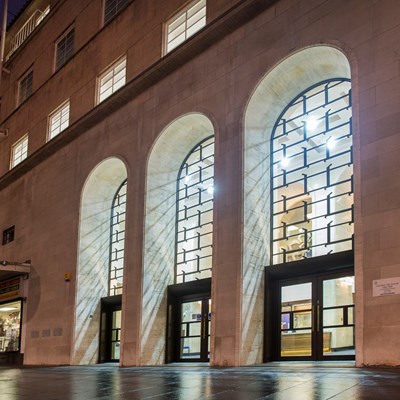MORE than £8.1 million is to be invested in a programme of creating new school places and provisions for children with additional educational needs.
The proposals by Leicester City Council would see three special schools in the city extended to provide extra facilities, with the creation of Designated Specialist Provision (DSP) and Specialist Units at 10 further schools across the city.
The project would create 228 permanent new school places for children with special educational needs, and is needed both to meet the growing demand for such places, and reduce the costs incurred by placing children in schools further away from the city.
Special schools which would be extended include the Leicester Partnership School in Knighton, Ellesmere College in Rowley Fields and Netherhall Special School, in Netherhall.
Netherhall was rebuilt in 2014 to accommodate 85 pupils, but currently has 108 pupils on its roll aged between four and 19 with severe and profound learning difficulties. As a result it has had to adapt some specialist spaces and storage rooms into teaching areas to cope with the pupil numbers.
An investment of just under £1.5million would permanently increase its capacity by 30 pupils, by creating three new classrooms, new toilets, kitchen, meeting room, laundry room and changing space, along with some outdoor soft landscaping.
Ellesmere Special School, which has 285 pupils, caters for special educational needs from early years through to post-16.
The proposed work costing nearly £3.6million would see the school’s sixth form relocated to a separate site at The Rowans, in Highfields, with work being carried out there to create six new classrooms, a reception room, assembly room, new toilets, kitchen, conference room and students’ common room.
In turn the move would create space for 60-70 new SEND places at the original school site.
The Leicestershire Partnership School teaches children aged 11-16 who have been excluded or at risk of exclusion from mainstream education, and over the last 12 months has extended its offer to pupils with EHCPs who can’t access special school places.
Expansion of its buildings by creating three new classrooms, a science lab, staff room/kitchen, an assembly/sports hall, new lobby, reception and visiting area, along with a new behaviour and intervention room, workshops, staff rooms and offices would cost over £1.8million and would enable 40 more pupils to attend permanently.
Work is proposed to start on all sites in September 2020, with the works being complete by January 2021.
In addition, Designated Specialist Provision (DSP) at 10 other schools means pupils who have additional needs normally beyond the capacity of mainstream education would have those needs met while still being at their own school.
The approach means pupils can have access to a broader curriculum, as well as a more varied educational experience within the wider school community.
A total of 98 DSPs are proposed at Sandfield Close Primary School (10); Rushey Mead Primary School (10); Kestrel Mead Primary School (8); Willow Brook Mead (8); Fullhurst Community College (10); Orchard Mead (12; Mellor and Braunstone Primaries (20), as well as Early Years Units (10) and Hearing and Early Years Units (10).
The total cost of DSPs would be £1.22million, from the city council’s capital budget.
Current capacity in special schools is 1,058, plus a further 82 places for SEND pupils within DSPs, making an overall capacity for SEND pupils of 1,140.
The latest investment will create 130 extra special school places and 98 more DSP places, making 228 new places in total, giving city schools the capacity for 1,188 special school places and 180 DSP places – a total of 1,368 SEND places overall.
Leicester assistant city mayor for education and housing, Cllr Elly Cutkelvin, said: “Special school places are already in high demand, and this is expected to rise further over the coming years, so investment is required now to ensure we can meet that need.
“The combination of both expanding these three existing schools, and creating more Designated Specialist Provision places, means we can ensure more children get the extra support required to access education, and in the case of the DSPs, doing so while ensuring children can still benefit as much as possible from being within a mainstream setting.”
Demand for special school places in the city has risen steadily over the last four years, as the number of children with an Educational, Health and Care Plan (EHCP) increasing from about 1,400 in 2014 to 2,500 this year. The areas of growth have been particularly strong in children and young people with Autistic Spectrum Disorder (ASD) and social emotional and mental health (SEMH) needs.
Latest figures from the Department for Education (DfE) show that there are now 354,000 children with an education, health and care plan (EHCP) in England, an increase of 11% in 2018 alone.
(Ends)
